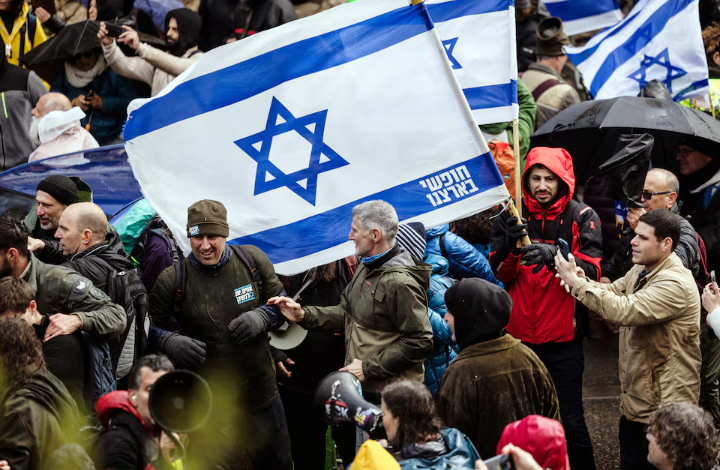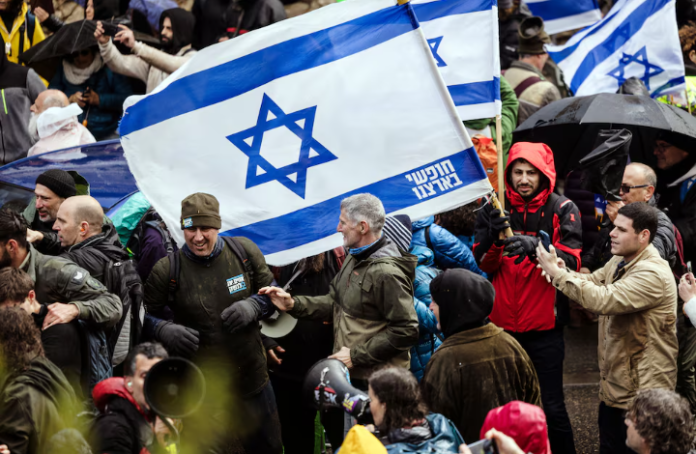Israeli Prime Minister Benjamin Netanyahu’s government has approved the dismissal of Shin Bet head Ronen Bar, igniting three days of intense protests across the country. The decision, announced early Friday, has led to violent clashes between demonstrators and police, with water cannons deployed and multiple arrests made.
Netanyahu cited a loss of confidence in Bar as the reason for his removal, but critics argue the decision is politically motivated, further deepening the country’s ongoing divisions.
Mounting Tensions and Street Protests
Since Netanyahu’s announcement, thousands of Israelis have taken to the streets in Tel Aviv and Jerusalem, condemning the move as an attack on democratic institutions. Protesters gathered near the prime minister’s residence, with some attempting to breach police barriers.
Many demonstrators have linked Bar’s dismissal to the government’s broader actions, including the decision to resume military operations in Gaza despite a fragile two-month ceasefire. The renewed conflict has left 59 Israeli hostages still held by Hamas, fueling public anger.
“We’re watching democracy slip away,” said Rinat Hadashi, a 59-year-old protester in Jerusalem. “The government is abandoning our hostages and prioritizing its own political survival over national security.”
Political Fallout and Corruption Allegations
Tensions between Bar and Netanyahu had reportedly been simmering for months, particularly over a corruption investigation involving senior officials in Netanyahu’s administration. Allegations surfaced that aides within the prime minister’s office were offered bribes by individuals linked to Qatar.
While Netanyahu has dismissed the accusations as a politically motivated smear campaign, opposition leaders argue that Bar’s removal is an attempt to obstruct the investigation.
In a letter to the cabinet, Bar condemned the dismissal process, calling it “tainted by conflicts of interest” and based on “baseless claims.” He also suggested that extraneous motives played a significant role in the decision.
Escalating Political Unrest
The protests over Bar’s removal are just the latest in a series of mass demonstrations against Netanyahu’s right-wing coalition government. Since returning to power in 2022, Netanyahu has faced continuous pushback over controversial judicial reforms aimed at limiting the power of Israel’s Supreme Court.
These reforms have been widely criticized as an assault on democracy, with opponents warning they could dismantle the judiciary’s ability to check government power. The move has fueled widespread unrest, drawing comparisons to authoritarian governance.
On Thursday, Yair Golan, leader of the opposition Democrats Party and a former military deputy chief of staff, was forcefully pushed to the ground during protests, sparking outrage among opposition politicians. Former Defense Minister Benny Gantz blamed the government’s “extremist agenda” for escalating tensions.
The Fate of the Hostages Remains Uncertain

Adding to the turmoil, the resumption of Israel’s military campaign in Gaza has left families of hostages deeply concerned. The fate of the 59 remaining captives remains uncertain, with as many as 24 still believed to be alive.
The Hostages and Missing Families Forum, an advocacy group representing the families, warned that the renewed offensive could result in hostages being killed either by their captors or Israeli airstrikes.
“This is not an outcome the Israeli people can accept,” the group said in a statement.
With the country in turmoil and Netanyahu’s government facing increasing scrutiny, it remains unclear how long the protests will continue—or whether the prime minister’s latest move will further destabilize an already divided nation.



